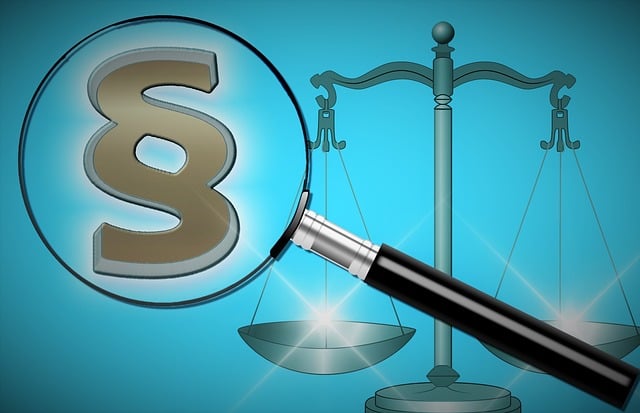Litigation risk arises from minor errors that can lead to costly legal battles. To overturn wrongful convictions and manage this risk, follow these steps: conduct thorough due diligence, assess risks proactively, collect evidence, interview witnesses, leverage criminal defense strategies, communicate effectively, document cases, stay informed on court decisions, navigate post-conviction relief with strategic planning, and seek guidance from specialized criminal defense lawyers to restore justice and reputation.
In today’s legal landscape, effective litigation risk management is paramount for organizations and individuals alike. This comprehensive guide explores strategic approaches to mitigate risks, focusing on understanding common pitfalls that lead to costly lawsuits. We delve into strategic pre-litigation measures designed to bolster defenses and present actionable steps for navigating post-conviction relief, with a special emphasis on overturning wrongful convictions. By mastering these techniques, you’ll fortify your legal position and safeguard your reputation.
- Understanding Litigation Risk: Common Pitfalls and Triggers
- Strategic Pre-Litigation Measures to Fortify Defenses
- Navigating Post-Conviction Relief: Steps to Overturn a Wrongful Verdict
Understanding Litigation Risk: Common Pitfalls and Triggers
Understanding Litigation Risk involves recognizing common pitfalls that can lead to unexpected legal battles. Many cases emerge from seemingly minor errors or misunderstandings, escalating into complex and costly litigation. Triggers can range from misinterpreted contracts to alleged breaches of duty, with each situation requiring meticulous navigation to avoid detrimental outcomes. For instance, a business might face a lawsuit due to an unclear agreement, leading to a lengthy process of decoding the terms and potentially costly settlements if not handled properly.
Knowing the steps to overturn a wrongful conviction is crucial in managing litigation risk effectively. An unprecedented track record of successful appeals can be a testament to a robust legal strategy. By proactively addressing potential issues and employing skilled counsel, organizations and individuals can significantly lower the chances of facing litigation in the first place. Moreover, avoiding indictment through careful due diligence and comprehensive risk assessment is often the best course of action, ensuring a complete dismissal of all charges.
Strategic Pre-Litigation Measures to Fortify Defenses
In the complex landscape of litigation risk management, strategic pre-litigation measures play a pivotal role in fortifying defenses and enhancing the chances of winning challenging defense verdicts. The initial steps to overturn a wrongful conviction often involve meticulous fact-finding and thorough legal research. By proactively gathering evidence, documenting interviews with witnesses, and scrutinizing procedural errors, legal teams can build a robust strategy that addresses potential vulnerabilities. This proactive approach not only strengthens the case but also demonstrates a commitment to due diligence, which can significantly influence the respective business’s outcome.
Moreover, integrating general criminal defense strategies into pre-litigation planning is essential. This includes understanding the applicable laws, identifying potential legal loopholes, and developing creative arguments that challenge the prosecution’s narrative. Effective communication with clients, maintaining comprehensive case files, and staying updated on relevant precedents are critical components of these measures. Such steps not only mitigate litigation risks but also position the defense team to present a compelling and winning challenging defense verdict in court.
Navigating Post-Conviction Relief: Steps to Overturn a Wrongful Verdict
Navigating Post-Conviction Relief: A Complex Process
When faced with a wrongful conviction, individuals have legal avenues to explore for potential relief. The process involves meticulous steps, requiring extensive knowledge and expertise in criminal law. One of the primary goals is to achieve extraordinary results by presenting compelling evidence that challenges the initial verdict. This may include examining procedural errors, investigating new evidence, or questioning witness testimonies, especially in cases where the guilt was not conclusively proven.
The journey towards overturning a wrongful conviction demands strategic planning and a deep understanding of constitutional rights. Legal professionals specializing in general criminal defense play a pivotal role in guiding clients through this labyrinthine process, ensuring their rights are protected and advocating for justice within the legal framework. Ultimately, the steps to overturn such a verdict can pave the way for closure and restoration of reputation for those wrongfully accused, impacting not just the individual but also the confidence of philanthropic and political communities in the fairness of the criminal justice system.
Effective litigation risk management involves a multifaceted approach. By understanding common pitfalls and triggers, organizations can proactively mitigate risks before they escalate. Pre-litigation strategies, such as thorough documentation and transparent communication, are crucial in fortifying defenses. Moreover, navigating post-conviction relief offers a chance to rectify wrongful verdicts through specific steps designed to overturn unjust decisions. Adhering to these guidelines enables businesses to protect their reputation, financial health, and integrity in the face of legal challenges.






